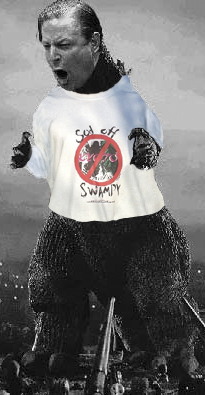Fill In the Blank Pop Quiz
A work published in 1896 has some pretty contemporary sentiments even today. Ending with the following paragraph…
“I have heard from half a dozen head-masters of schools that they find the art of ___-________ is so distasteful to their scholars, and so much above their intellect, and so fatiguing an exercise to the youthful mind, that they feel obliged to abandon the study of it and replace it once more by those easier and pleasanter subjects, Latin and Greek”.

…WHAT does “Studies in the Art of ___-________” pertain to?
(No trickstering, either!)

In that year, the big movement was from Columbia Teacher’s college to abandon the classics in education.
“From a national point of view it is always dangerous to educate a boy, and to a certain extent also a girl, with no reference to vocational ends, and we may well pause and reflect when we see great numbers of our brighter young people saturating themselves today with a mass of knowledge that can have little application for the lives which most of them must inevitably lead. Disappointment and discontent are almost sure to be the result, and disappointment and discontent among its educated classes are not good for any nation.” Teachers College professor Ellwood P. Cubberly
In other words, we’d best not let there be too many educated people in the country or we might have a revolution. This was the prevalent mindset of the intelligentsia in 1911, a few years after the date in question. By the way, this policy of enforced ignorance among the lower classes was pretty successful in keeping the Portuguese government in place around that time frame. That country still hasn’t recovered.
Earl Russell from Columbia wrote in 1906, “How can a nation endure that deliberately seeks to rouse ambitions and aspirations in the on-coming generations which in the nature of events cannot possibly be fulfilled? If the chief object of government be to promote civic order and social stability, how can we justify our practice in schooling the masses in precisely the same manner as we do those who are to be our leaders?”
Even Teddy Roosevelt got into the act in 1907 by saying, “Our school system is gravely defective in so far as it puts a premium upon mere literary training and tends therefore to train the boy away from the farm and the workshop. Nothing is more needed than the best type of industrial school, the school for mechanical industries in the city, the school for practically teaching agriculture in the country.” This sounds nice if you don’t try to think about what he’s saying. What he’s saying is that we no longer need citizens who can think and can support “government by the people.” Instead, the government needs to pay for industry to get its workers trained. Industry has training needs, but rather than pay for this training themselves, they make the tax payers pay for their training program. This is an early form of industrial socialism, and is a strong hint at why politicians and industrialists supported this twisted type of anti-intellectual educational reform. It’s also a feature of industrial feudalism and factory serfs.
So, that’s the context of your quote, I imagine. Therefore I think that the quote is in reaction to the movement I’ve cited and thus it’s some sort of progressive subject. It’s not too early for psycho-analysis, which was considered pretty avant-garde back then.
Or maybe it’s political science. I await the answer with eagerness.
I cheated so I won’t say it. But I found it amusing.
The missing blanks: “global climate-modeling”
Magnificent effort, Skyler! Masterful but wrong, as well as Robin’s excellent guess.
(Thank you for being a gentleman, Mr. Summers.)
Danged if I know. “Modern” education is so f***ked up, it’s hard to say which one this refers to.
…the art of listing Liberal accomplishments
And the answer is?
In The Guardian, via the always entertaining Improbable Research.
Gee, this has been fun.
Thanks for the answer, and especially thanks to Skyler for reminding us all that clear thinking is nothing new.
TR et al were astonishingly prescient re the dangers of too much education.
Aaaaaaaargh!!!
Um, Rob, Teddy’s comments were down right evil to think that people should be segregated as to what should be taught, with only a pre-selected elite being allowed to be educated beyond how to lay bricks.